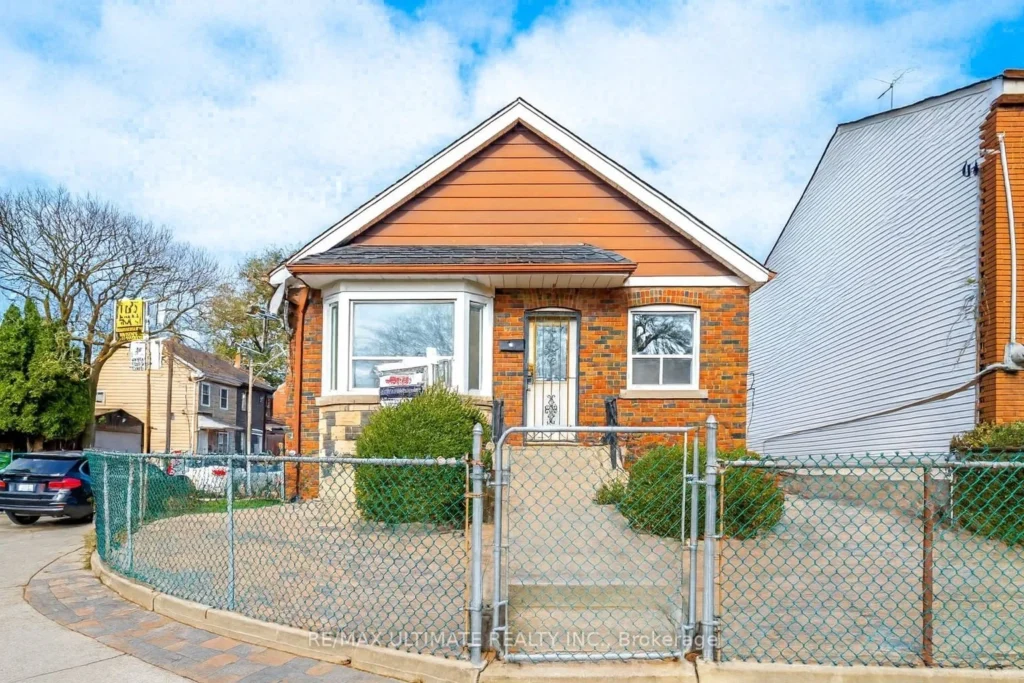Toronto Real Estate – Buyer’s Guide

My commitment to my buyer clients…
Because I am committed to preparing you to be an educated buyer, I will:
- give you the most vital and up to date information on available homes
- keep you aware of changes in the real estate market
- provide neighbourhood information on municipal services, churches, schools, etc …check applicable zoning and building restrictions
- disclose all known facts about properties I show you
- collect pertinent data on values, taxes, utility costs, etc
- point out strengths and weaknesses of all properties you choose to view
- explain forms, contracts, escrow and settlement procedures
- discuss loan qualification and processing.
Because I am committed to helping you save time, I will:
- provide ready access to all MLS listed properties
- help you select for viewing only homes that fit your needs
- show you only homes in the price range most suited to your finances
- arrange for necessary property inspections
Because I am committed to helping you find the best value, I will:
- prepare studies of property values in chosen areas
- perform a market analysis on chosen properties
- discuss financing alternatives
- see that you get a complete estimate of all costs involved
- advise on offers on properties
- write and negotiate your purchase agreement to the seller
- negotiate on your behalf
Because I am committed to you – I will do all of this, plus:
- keep your personal information confidential
- stay in touch with you from the day you start your search until the day you move in
- coordinate all aspects of the sale and closing
- be reimbursed with a commission only when we have successfully closed a transaction_
About Wins Lai & the Qualities of a Great Buyer’s Agent
A great agent is…
- Dedicated to their profession
- Someone who take time to determine your needs
- A listener – and responds to your requests
- Familiar with the area in which you have an interest
- Knowledgeable about properties in your price range
- Willing to work with you until your needs are fulfilled
- Someone who will handle all aspects of the transaction and be responsive with follow-up
About me…
- I’ve worked as a full time agent and have been in the industry for over 6 years
- Won multiple sales achievement awards from Living Realty
- I have access to the Multiple Listing Service and will provide new listings as they come available
Evaluating a Neighbourhood
Drive around…
- Does it look like a place you’d like to live?
- Is it near places you’d like to go
- Is it too near places you’d like to avoid
- What will it be like at commuting times?
- What is it like at night?
- Quality of schools
- What is average school performance
- Average test scores of high schools
- Financial position Education/Income Profile
- What is the average household income? Education Level? Occupations? Family type?
- Cultural Amenities Proximity to museums, galleries, universities, seasonal entertainment, theaters, etc. Even if you don’t frequent them, they set the tone for the area. Property Values Steady or increasing values generally mean a sound investment. It is almost always best to buy the smallest, least expensive home in the best neighborhood you can afford.
- Future Growth If you are not planning on staying in your new home for a number of years, an abundance of new construction could affect resale. The existence of higher end properties could increase the value of yours.
Home Buying Guidelines
If you have to resell soon, don’t buy an unusual house. Even if the quality of the school district doesn’t matter to you now, remember it might someday to another buyer.
Brand new homes may be lower in maintenance costs but can be higher in out of pocket expenses There are no perfect homes. Be ready to make compromises or concessions. Know what’s most important to you and give on things that aren’t. Location, Location, Location.
Some things don’t change. Supply and demand is a critical issue. Be ready to move quickly when your find what you want. Pay attention to floor plans. Changing layouts of rooms can be costly.
Get preapproved for a mortgage prior to making an offer. Be an educated buyer. Learn as much as you can about the market before you buy. Always make your offer to the seller contingent on a home inspection – it’s money well spent.
Compare mortgages
Artificially low rates could have hidden costs. When interest rates are low, go for a fixed mortgage. Redoing kitchens and baths can be expensive, check these out carefully. Imagine the home vacant. Do not be swayed by decorating – the furnishings will go with the seller. Vacant homes appear bigger than they are. It may be a good idea to measure to make sure your furnishings will fit.
Buy the best home you can afford in the best neighbourhood you can afford. You are almost always better off with the least expensive home in the area rather than the most expensive.
Pay attention to the original listing date of the properties you look at: sellers tend to be more flexible the longer the home has been on the market.
Be honest and open with me. I work for you and can best help you if I have a good understanding of your needs.
You’ll know the right home for you when you see it and it will have very little to do with logic!
It’s Time to Make an Offer
Put yourself in the seller’s shoes and imagine how they may react to everything you’re about to put in your offer. Oral promises are not legally enforceable when it comes to sale of real estate. Please be sure you have communicated everything you want in the offer.
- Price – a comparative market analysis will show you the fair market value of the property
The following factors could affect price:
- Condition of home
- New home improvements
- Market condition
- Seller’s motivation
- Deposit – you will need to put up some money to show the seller you are sincere about purchasing the home.
- Financing Contingency – You will probably need a mortgage. Even if you are preapproved the lender will still need time to get the appraisal done, order title, etc. I will advise you on how much time to allow for.
- Home Inspection – It’s money well spent in the long run. If the home has major issues, you’ll want to know before buying it, not when you’re stuck with it after closing.
- Disclosures – Make sure you receive all proper seller disclosures. law requires the seller to disclose all material defects that they are aware of.
- Multiple offers – It doesn’t have to be a ‘hot’ market for a seller to have the luxury of choosing between multiple offers. If you find yourself in a multiple offer situation, don’t panic and don’t withdraw your offer – you could be the highest bidder. Go through at least one round of negotiations before you decide to withdraw. Have a price in mind of where you want to go and stay in the game until the price is reached. Many buyers lose the property by pulling out too soon
From Offer to Closing
Once your offer has been presented to the seller the negotiating process begins. There are liable to be numerous counter-offers going back and forth between you and the seller. There are a few important things to remember:
- Your offer is just that – an offer – until it has been accepted and agreed to by both you and the seller. At any time during the negotiating process another offer could come in and cause you to be in a multiple offer – or worse – lose the house completely. A wise buyer will try to come to an agreement with the seller in a reasonably short period of time.
- Many contracts have stipulations on when the buyer must make his mortgage application. Please be sure to check your contract and abide by its requirements.
- If your contract calls for a home inspection and attorney review, please choose both of these as quickly as possible. I will be able to provide you with some recommendations. Your service providers have a limited amount of time to protect your interest.
- Be sure to comply with all requests of your lender after the mortgage application has been done. Not producing the documents or information they need can jeopardize your getting your mortgage on time.
- Generally, the buyer accompanies the home inspector at the inspection. Please allow at least 2 to 3 hours for an average inspection. More time may be necessary for a large home. I act as your coordinator for all activities from this point and will keep everyone in the loop as far as what is going on.
- The lender, home inspector, both attorneys, the other REALTOR, the title company (or escrow agent) will all be performing necessary duties during this time. Your agent will schedule this with you, the seller and the listing agent. It should happen just prior to the closing.
- If all of this sounds a little overwhelming – don’t worry – I have been through this many times and will be there for you during the entire process. Relax and enjoy the experience.
Mortgage Application Checklist
Before you go out and look at dozens of homes, you need to get pre approval from a lender.
The worst possible situation is to find your dream home, but find out later that you can’t get qualified to buy it.
- I can recommend specific lenders to contact that have a proven track record of successfully closing deals. Choose a lender with local representatives and offices. Face to face meetings with your loan officer are highly recommended.
- Get 2 or 3 different quotes from lenders. Talk to the lender about how long you plan to be in the home as they may have different loan products to meet your needs. All lenders differ on what they need from their borrowers. This list is intended to give you a general idea of what will be required at the time of mortgage application.
Please check with your lender for a complete list of necessary information.
- Social Insurance Number and Date of Birth for you and any co-borrowers
- Paycheck – Your most recent pay stub showing year-to-date earnings
- T4 Tax Forms – The lender will require 2 years and accompanying tax forms Employers – The names, addresses, and telephone numbers of your employers for the past two years
- Accounts – You will need the account numbers and current balances of your checking account, savings account, money market account or any other accounts you may have
- Current Assets – Current assets such as mutual funds, RRSPs, stocks, bonds or securities. Your lender may require a current brokerage statement with name of the stock, amount per share and number of shares owned.
- Personal Property – Value of personal property including life insurance face value, employee retirement accounts, furniture, cars, jewelry, coins, and other valuable property
- Liabilities – For each loan, provide the lender with the name and address of each creditor and include both the monthly payment and total amount due. Liabilities will include auto loans, student loans, credit cards and other installment debt.
- Current and Previous Addresses – If you own a home you will need the property address, current market value, mortgage lender name, account number, current monthly mortgage payment and outstanding balance. If you rent, you will need the property address, name and address of the landlord, the current monthly rent, and previous address/landlord. You will need information about your former addresses if you’ve lived in your current address for less than two years.
- Sales Contract – Bring along a signed copy of that agreement and any amendments to it, a copy of the listing form for the property you wish to purchase and the legal description of the property.
Special Situations
- Self employed or commissioned – bring tax forms for the past two years along with a current year-to date profit and loss statement
- Separated or divorced – Bring a copy of your divorce decree and separation agreement. If you are receiving alimony or child support and you want it to be considered as income, you’ll need proof of this income (cancelled checks for the past 12 months, for example)
Contact Us to Learn more about buying in Toronto
Wins Lai
Real Estate Broker
Re/Max Ultimate Realty Inc., Brokerage
m: 416.903.7032
p: 416.530.1080
f: 416.530.4733
a: Trinity Bellwoods Office: 836 Dundas Street West., Toronto ON M6J 1V5
Bay Street Office: 1170 Bay Street., Suite 110, Toronto ON M5S 2B4
w: www.winslai.com e: wins@winslai.com
*Top Producer for 8 consecutive years – 2017 to 2024

